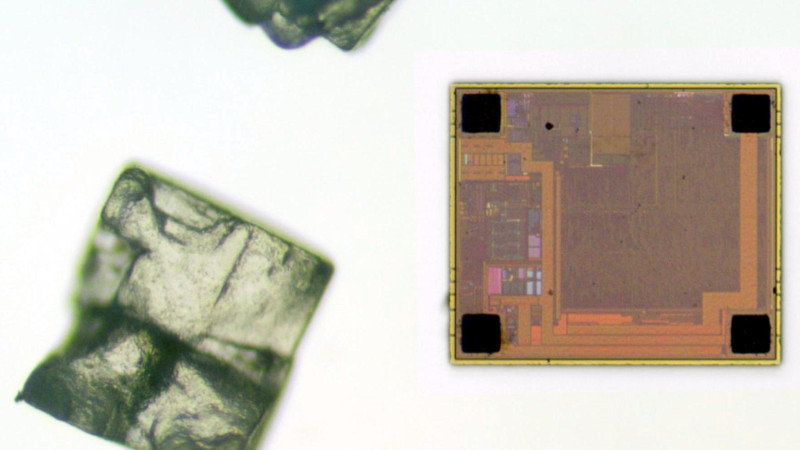If you take public transport in many of the world’s cities, your ticket will be an NFC card which you scan to gain access to the train or bus. These cards are disposable, so whatever technology they use must be astonishingly cheap. It’s one of these which [Ken Shirriff] has turned his microscope upon, a Montreal Métro ticket, and his examination of the MiFare Ultra Light it contains is well worth a read.
The cardboard surface can be stripped away from the card to reveal a plastic layer with a foil tuned circuit antenna. The chip itself is a barely-discernible dot in one corner. For those who like folksy measurements, smaller than a grain of salt. On it is an EEPROM to store its payload data, but perhaps the most interest lies in the support circuitry. As an NFC chip this has a lot of RF circuitry, as well as a charge pump to generate the extra voltages to charge the EEPROM. In both cases the use of switched capacitors plays a part in their construction, in the RF section to vary the load on the reader in order to transmit data.
He does a calculation on the cost of each chip, these are sold by the wafer with each wafer having around 100000 chips, and comes up with a cost-per-chip of about nine cents. Truly cheap as chips!
If NFC technology interests you, we’ve taken a deep dive into their antennas in the past.
















Don’t you mean “cheap ass chips”?
B^)
Is this a repost?
I definitely read this on HaD yesterday, though the HaD part is different.
It’s a good read even the 2nd time. Watch out when the matrix changes.
https://hackaday.com/2024/06/24/inside-nfc/
These kind of tickets are super waisteful and should be banned imo. papaer tickets seem to work well enough.
First we had microplastics in our body now we will have microchips.
“Cheap as chips”
If you buy “gas station” sized packages at a gas station, I posit that these are actually CHEAPER than chips, not counting the 1/4 of the weight of chip dust at the bottom of the bag.
I have not experienced these as disposable in the UK. Always reloadable. Many of the bus companies have now moved to time based QR code apps which are superior in both security and waste
Until the battery in your smartphone is flat. Or you run out of mobile data, or the phone network is down (though the UK might do a better job of this than where I live)
I would NEVER rely on public transport if it in turn relied on every passenger having a smartphone.